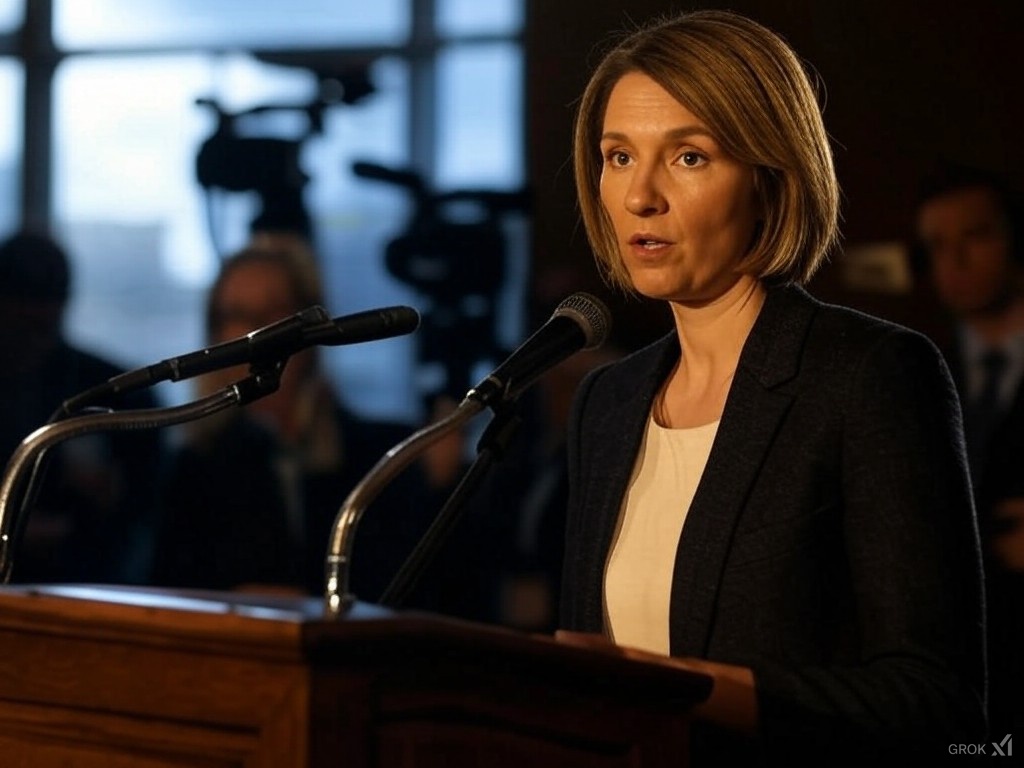Emma Reynolds Addresses Lobbying Allegations: A Closer Look at Her Role and Responsibilities
Emma Reynolds, the newly appointed Treasury minister, has recently found herself in the spotlight following concerns regarding her previous career as a lobbyist. Specifically, questions have arisen about her time as managing director of trade at TheCityUK, a business lobbying group. In response to these allegations, Reynolds has been emphatic in clarifying her position and reinforcing her commitment to her current role within the UK government.
Background on Emma Reynolds and Her Role
Emma Reynolds took over the Treasury minister role from Tulip Siddiq, who resigned amid controversies surrounding her family’s political ties in Bangladesh. Reynolds has a strong background in politics, having served in various capacities, including as an MP for Wycombe. Her experience in the financial services sector has been seen as an asset in her current role as economic secretary to the Treasury, where she oversees interactions with financial services.
Despite her qualifications, Reynolds has faced scrutiny about her previous lobbying work. This has raised important questions about transparency and potential conflicts of interest, particularly regarding her interactions with China during her tenure at TheCityUK.
Addressing the Concerns
In a recent interview with Times Radio, Emma Reynolds firmly denied allegations that she had worked on behalf of the Chinese government or businesses. She stated, “I can categorically tell you I have never worked for the Chinese government, and I’ve never worked for Chinese business.” This assertive denial aims to quell the concerns that have been circulating in the media.
Reynolds elaborated further, stating, “Firstly, that is not correct. I represented UK-based financial services firms, and there were concerns that they had about their activities, not Chinese activity.” Her statement emphasizes that her lobbying efforts were focused on ensuring that UK financial services had viable opportunities in international markets, rather than advocating for Chinese interests.
The Role of TheCityUK
TheCityUK is a prominent organization representing the UK’s financial and professional services sector. Its mission is to promote the UK as a global financial center and to advocate for policies that benefit UK businesses. Given this context, Reynolds’ role as managing director of trade involved engaging with various stakeholders to promote the interests of UK firms, making her position pivotal in the discussions surrounding international trade and investment.
However, the perception of lobbying can often be clouded by the complexities of international relations. Reynolds acknowledged this, stating, “Can I just correct you on that, because there’s been a lot of rubbish written about this, frankly.” Her candidness highlights the challenges faced by politicians when the lines between advocacy and lobbying become blurred.
Implications of Her Role as Treasury Minister
As Treasury minister, Reynolds is tasked with making critical decisions that can influence the UK economy. This includes overseeing financial regulations, engaging with international partners, and ensuring that the UK remains a competitive player in global markets. Given the ongoing geopolitical tensions, particularly with China, it is crucial for Reynolds to navigate her responsibilities with transparency and integrity.
Downing Street has also stated that there is no need for Reynolds to recuse herself from matters involving China, further emphasizing confidence in her ability to perform her duties without bias. This assurance is vital for maintaining public trust in government operations, especially when dealing with sensitive topics such as international trade and diplomacy.
The Importance of Transparency in Politics
In recent years, there has been an increasing demand for transparency in political dealings. Citizens expect their representatives to operate with integrity and to avoid conflicts of interest. Reynolds’ situation underscores the importance of clear communication and accountability in governance. By addressing the allegations head-on, she aims to foster trust and reassure the public of her commitment to her role.
Public Reaction and Future Outlook
The public’s reaction to Reynolds’ clarifications has been mixed. While some appreciate her forthrightness, others remain skeptical about the implications of her previous lobbying work. As she moves forward in her role, it will be essential for Reynolds to maintain open channels of communication with the public and stakeholders to mitigate any lingering doubts.
Moreover, the landscape of international trade is constantly evolving, particularly in the context of UK-China relations. As Reynolds navigates her responsibilities, she will need to stay attuned to global market dynamics while advocating for the best interests of the UK financial sector.
Conclusion
Emma Reynolds has taken a firm stance against allegations regarding her lobbying history, emphasizing her commitment to representing UK interests in financial services. Her experience in the sector is seen as an asset in her new role, but the scrutiny she faces highlights the importance of transparency and accountability in government. As she continues to serve as Treasury minister, her ability to effectively communicate her intentions and decisions will be key to maintaining public trust and ensuring the success of UK financial services on the global stage. The coming months will likely reveal more about her approach to these challenges and the impact of her leadership within the Treasury.





